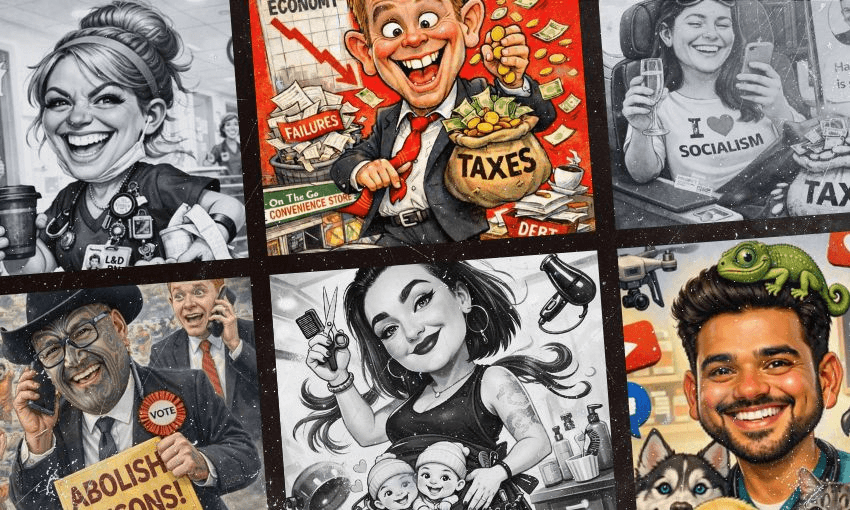Paula Bennett is reportedly keen to see tipping introduced to New Zealand. Henry Oliver explains why this is a terrible, terrible, terrible idea.
There’s a lot to love about eating out in the US. The food is usually fatty, salty, sweet and delicious. And the portions are fucking huge. But there’s a downside too. When you get to the end of a meal, half-cut and in a food coma, you have to do some grad school level maths to work out not only how much the meal cost, but how much each of you (assuming you didn’t eat alone) owes.
Why? Because the menu has a price that doesn’t include tax or service. So in New York, for instance, you need to add 8.875% and then add a tip – 15% for cheapskates who want to get away with the bare minimum, 20% for people who want to live in a civil society.
Then you go to a bar and get a drink. What do you pay? Theoretically, the same – 15% to 20%. But if you go to a dive bar and order a $2 can of beer, you can’t slam down 40 cents on the counter, you gotta pay a buck. Go to an opening or something with free drinks? That’s a buck per as well.
All of which to say, as a consumer, tipping is confusing. And which, let’s be honest, is the least-shitty thing about it.
“That’s the least-shitty thing?” I hear you, dear reader and lazy rhetorical device, wonder. “What’s more shitty than consumer confusion?”
Basically everything. Tipping is discriminatory in almost every fathomable way. White people get tipped more than people of colour. Young people get tipped more than old people. “Attractive” people get tipped more than, um, less-attractive people. People who wear red get tipped more than people who wear other colours. Flirty people get tipped more than people who don’t think they’re getting paid enough to rub your stupid arm or pretend to laugh at your stupid joke, all of which leads to an increase in sexual harassment.
And that doesn’t take into account the discriminatory effects of who gets tipped and who doesn’t. The nice young students who are serving coffee while working towards their commerce degree? Tip em! The migrant worker washing the dishes? Who cares!
But, I hear you, my ambivalent-to-discrimination reader, ask: what if young white women with blonde hair, small waists, large breasts, and a tolerance for harassment (I wish I were making this shit up) are just better servers? Well, no. Tipping hardly varies with the quality of service and so provides little incentive to improve service. According to this Cornell University study by a guy who has seemingly spent his entire life researching tipping, customer’s service-ratings only accounted for a 1-5% variation in tip. So a great server might get a 20% tip, while a terrible one might still get 15-19%. What’s the point?
Not enough for you? How about corruption? Cultures that tip have higher instances of corruption. Which makes sense. If you’re accustomed to thinking that leaving small amounts of cash on a dining table results in better service, why shouldn’t you be able to slip other people larger amounts of cash to obtain advantages more nefarious than quick water refills?
Newstalk ZB is reporting that tourism minister and deputy PM Paula Bennett is “going public to show her support for tipping”, and has written a letter to Newstalk’s media sibling the Herald saying that while service is New Zealand is good, we need tipping to make it better.
No. If we bring tipping to New Zealand, here’s what will happen:
- You’ll be expected to tip roughly the same amount regardless of how good the service is.
- Your server will likely start getting paid less because they’re receiving tips.
- People of colour, people with dark hair, older people, people with smaller breasts, people with bigger waists, and people who don’t wear red or touch you will all effectively get paid less for the same job as young white women with blonde hair, big breasts, small waists, who wear red and rub your shoulder.
- You will be confused about how much to tip in different circumstances and whether to calculate tip before or after GST.
- You will judge your friends on how much they tip and whether they ‘throw in’ the same amount as all your other friends. And they will judge you too.
- New Zealand might become more a corrupt society.
- It will be annoying.
And why?
So service can maybe, possibly get ever-so-slightly better?
No thanks, Paula. No thanks.
Postscript: Despite the above air-tight argument, if you are in a society where tipping is expected please tip. And not the minimum. Yes, tipping should be abolished, but until it is, don’t be a prick like Mr Pink up there.



